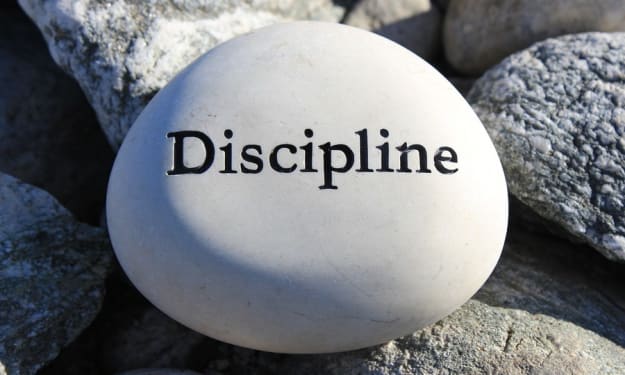The Infinite Spectrum of Love
Unraveling the Mysteries of the Heart

Love, a multifaceted and universal emotion, has been a subject of fascination, reverence, and contemplation since time immemorial. Its power to transform lives, inspire creativity, and foster connections transcends boundaries, making it a central theme in literature, art, and philosophy. In this exploration of love, we delve into its diverse manifestations, historical significance, cultural interpretations, and the profound impact it has on human existence.
The Ancient Roots of Love
Love's origins can be traced back to ancient civilizations, where it was often intertwined with mythology and religion. The Greeks, for instance, conceptualized love in various forms, each represented by a different deity. Eros, the god of passionate love and desire, embodied the physical and sexual aspect of love. In contrast, Agape represented unconditional, selfless love, often associated with divine affection.
In Hindu mythology, the god Krishna is often depicted with his consort Radha, symbolizing a divine, eternal love that transcends the physical realm. Their love story, filled with devotion and longing, has inspired countless poems, songs, and dances in Indian culture.
Philosophical Perspectives on Love
Philosophers have long grappled with the nature of love, seeking to understand its essence and implications. Plato, in his dialogue "The Symposium," presents love as a ladder of ascent, beginning with physical attraction and culminating in the appreciation of the divine and the pursuit of truth. This idea, known as Platonic love, emphasizes the intellectual and spiritual dimensions of love.
Aristotle, on the other hand, viewed love as an integral component of friendship, essential for human flourishing. He distinguished between three types of friendships: those based on utility, pleasure, and virtue. True love, according to Aristotle, is found in virtuous friendships, where individuals seek the good of the other for the sake of the other.
Love in Literature and Art
Literature and art have been powerful mediums for expressing the complexities of love. Shakespeare's timeless plays, such as "Romeo and Juliet" and "Othello," explore themes of love, jealousy, and tragedy, revealing the intense emotions and conflicts that love can provoke.
The Romantic era, spanning the late 18th to early 19th centuries, celebrated love's emotional depth and individual expression. Poets like William Wordsworth and Lord Byron captured the sublime experience of love, often intertwined with nature and personal introspection.
Visual art, too, has depicted love in myriad forms. From the sensuous paintings of the Renaissance, such as Botticelli's "The Birth of Venus," to modern art's abstract representations of love and connection, artists have continually sought to capture the essence of this profound emotion.
The Science of Love
Modern science has provided new insights into the mechanisms of love, revealing its biological, psychological, and neurological underpinnings. Researchers have identified several key chemicals involved in the experience of love, including oxytocin, dopamine, and serotonin. These neurotransmitters play crucial roles in bonding, pleasure, and emotional regulation.
Helen Fisher, a prominent anthropologist, has proposed a model of love comprising three distinct systems: lust, attraction, and attachment. Each system is associated with different brain regions and hormones, contributing to the complex experience of romantic love. Lust drives the initial desire for physical intimacy, attraction fosters a focused attention on a particular partner, and attachment builds long-term bonds and companionship.
Cultural Variations in Love
Love's expression and significance vary widely across cultures, reflecting diverse social norms, values, and traditions. In Western societies, romantic love is often idealized and linked to marriage, with a strong emphasis on individual choice and emotional fulfillment.
In contrast, many Eastern cultures prioritize familial and communal bonds, viewing love as a duty and commitment rather than solely an emotional experience. Arranged marriages, for example, are common in some cultures, where love is seen as something that can develop and deepen over time through mutual respect and shared life experiences.
African cultures often celebrate communal love and interconnectedness, with proverbs and stories highlighting the importance of community and collective well-being. Ubuntu, a Nguni Bantu term, encapsulates this philosophy, emphasizing humanity and compassion as foundational aspects of love.
Modern Love in the Digital Age
The advent of technology and social media has revolutionized the way we experience and express love. Online dating platforms have expanded the possibilities for finding romantic partners, breaking down geographical and social barriers. However, this digital transformation has also introduced new challenges, such as the prevalence of superficial connections and the impact of virtual interactions on real-life relationships.
Social media platforms, while facilitating communication and connection, can also create unrealistic expectations and comparisons, potentially undermining self-esteem and relationship satisfaction. The curated portrayal of love and happiness online often contrasts with the complexities and imperfections of real-life relationships.
The Transformative Power of Love
Despite its challenges and complexities, love remains a transformative force in human life. It has the power to heal, inspire, and elevate individuals, fostering personal growth and resilience. Acts of love and kindness can create ripples of positive change, strengthening communities and promoting social harmony.
Love also plays a crucial role in mental and physical health. Studies have shown that strong, supportive relationships can enhance well-being, reduce stress, and improve longevity. The emotional support and sense of belonging provided by loving relationships are vital for coping with life's challenges and fostering a sense of purpose.
Love's Future: Challenges and Possibilities
As we navigate an ever-changing world, the future of love will undoubtedly be shaped by emerging trends and societal shifts. The increasing acceptance of diverse forms of love, such as LGBTQ+ relationships and polyamory, reflects a broader understanding and celebration of love's diversity.
Advances in technology, such as artificial intelligence and virtual reality, may also redefine our experiences of love and intimacy. These innovations hold the potential to create new forms of connection and companionship, while also raising ethical and philosophical questions about the nature of love and human relationships.
Embracing Love's Infinite Spectrum
Love, in all its forms and expressions, is an integral part of the human experience. From ancient myths to modern romance, love's enduring presence in our lives attests to its profound significance. By embracing love's infinite spectrum, we can cultivate deeper connections, foster compassion, and create a more harmonious world.
In celebrating love's diversity and complexity, we recognize its transformative power and the endless possibilities it offers for personal and collective growth. As we continue to explore and understand this timeless emotion, we enrich our lives and the lives of those around us, creating a legacy of love that transcends time and space
About the Creator
Susan Giles
I write about love, romance , dating and relationships.
I write about social media, marketing, local news and modern entrepreneurship
Enjoyed the story? Support the Creator.
Subscribe for free to receive all their stories in your feed. You could also pledge your support or give them a one-off tip, letting them know you appreciate their work.






Comments (2)
Susan Giles! True, polyamory and LGBTQ+ seem like real challenges to the traditional concept(s) of love.
have you ever felt it?